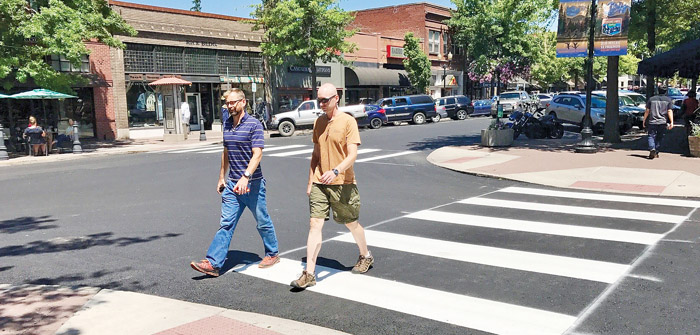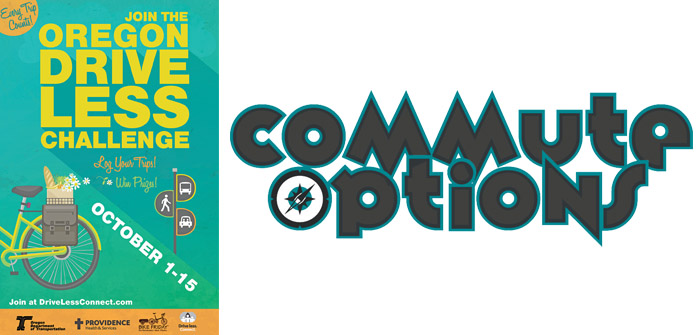On March 4–6, more than 750 advocates, government staff and cycling enthusiasts – including Kim Curley of Commute Options – from all 50 states came together in Washington D.C. for the National Bike Summit to share strategies, learn innovative practices and show congressional members how investments in bicycling infrastructure make good economic sense.
The summit’s theme, Bicycling Means Business, was especially apropos to Central Oregon. In a place like Central Oregon where bicycling opportunities and events bring money-spending tourists, investing in bicycle trails can lead to economic gain. Trails draw visitors, customers and residents, all of who, in turn, support businesses and boost real estate values.
Bend’s economy, for example, was substantially impacted by the 2009 Cyclocross National Championships alone. A study commissioned after the event by Visit Bend (who brought this and other national championship races to the area) showed $1.08 million in direct tourist spending. Multiply that number by several events per year, and it is easy to see that maintaining and improving bicycling conditions locally is a sound idea.
But trail and road racing and recreational activity is only part of the picture. With the new transportation law threatening traditional funding sources for active transportation projects, it is more important than ever for bicycling advocates like Curley to show lawmakers and key decision-makers how investment in bicycling infrastructure for all users is going to pay off.
“With our country’s aging infrastructure and diminished federal funding, the bicycle truly is the solution,” said Curley. Speakers at the summit demonstrated many examples of cities that have been successful in attracting and keeping bright young people in their work force by offering conveniences for getting around without a vehicle, she said.
“Oregon representative Earl Blumenauer, for one, told summit participants that he sees a shift in people going back to urban centers to live and work. Brookings Institutes’ Bruce Katz agreed that there is a migration of young people to revitalized urban centers where they do not have to drive,” said Curley.
Portland is Oregon’s shining example of how this works. According to a report generated by Advocacy Advance, a partnership of the League of American Bicyclists and the Alliance for Walking & Biking, Portlanders travel 2.9 billion fewer miles and spend 100 million fewer hours in commutes, saving $2.6 billion a year compared to the distance and time spent commuting to work in the median American city.
Many of the innovative alternatives to driving and parking vehicles discussed at the National Bike Summit are being practiced in Portland, said Curley. “115 businesses in Portland have volunteered to give their coveted front parking space to a bike corral,” she said. “There is a waiting list to have them installed.” Bike Corrals provide up to 12 bicycle parking spaces in place of one car parking space.
Curley hopes that Central Oregonians will continue to see the benefits of investments in bicycling infrastructure and include more of these ideas locally. Bike sharing – essentially, the ability to use a bicycle parked at stations in a downtown area – is another program that is working in other cities and that could have value in Bend, said Curley. Washington D.C.’s Capital Bikeshare program has shown that Bikeshare members are more likely to patronize a business if it is located near a bikeshare station, for example.
More opportunities for economic gain come with bicycle-friendly businesses – those that provide bike parking, choose bike-accessible locations and provide incentives for their employees to ride to work. “Those who make bicycle transportation part of their daily routine, thus saving on fuel and parking costs, are shown to spend more on other services in the community, making them an important group for businesses to attract,” said Curley.
Commute Options works year-round in cooperation with city, tri-county and state agencies, businesses and other organizations to improve conditions for those who use commute options. For Curley, attending the National Bike Summit provides a springboard for new ideas, connections and learning about resources to make this happen. “My purpose is to bring back best practices and new ideas to help us do our work,” she said.
Commute Options promotes choices that reduce the impacts of driving alone. For more information about Commute Options, contact Jeff Monson, Executive Director of Commute Options at 541/330-2647 or visit www.commuteoptions.org.
Annissa Anderson is a freelance writer and PR consultant in Bend.




